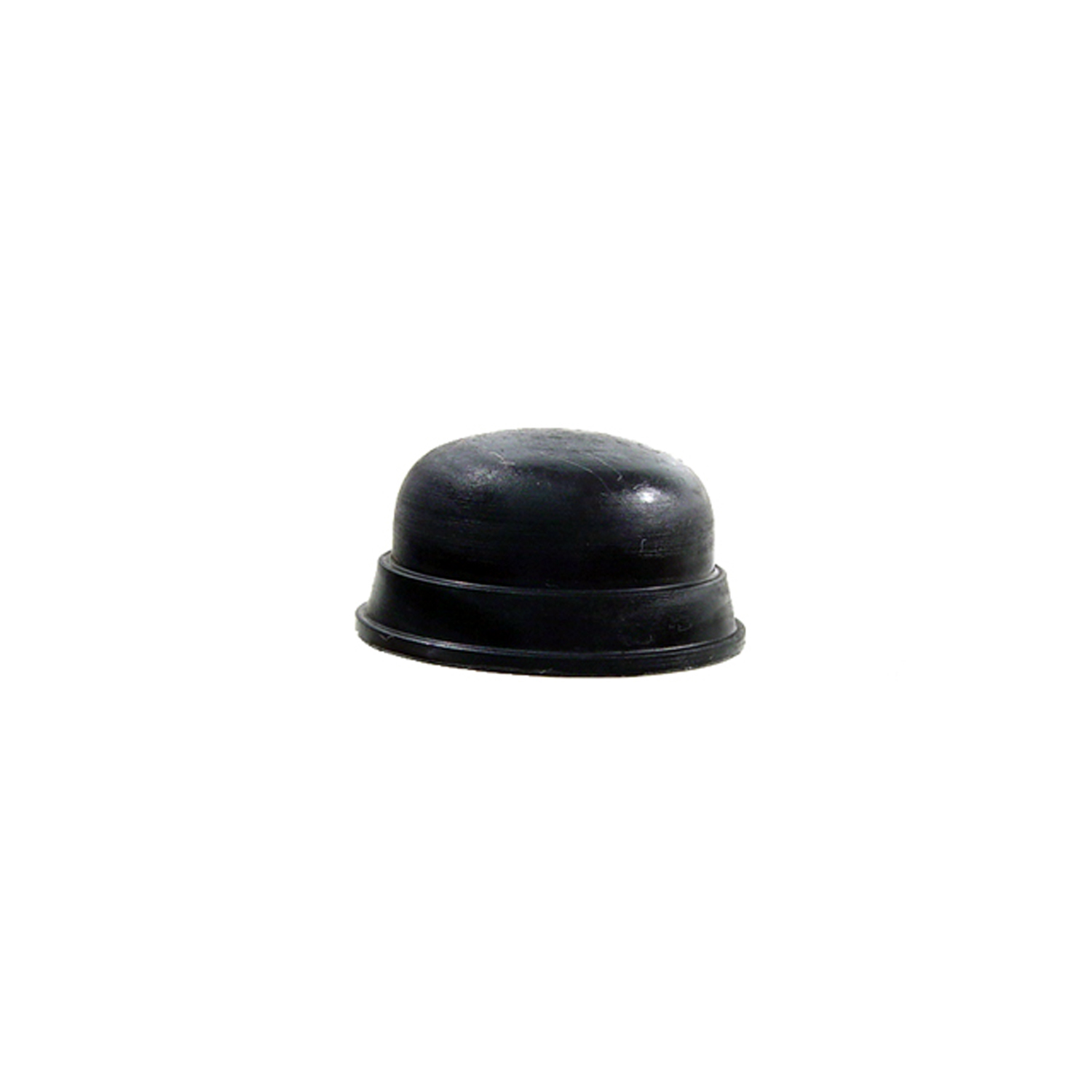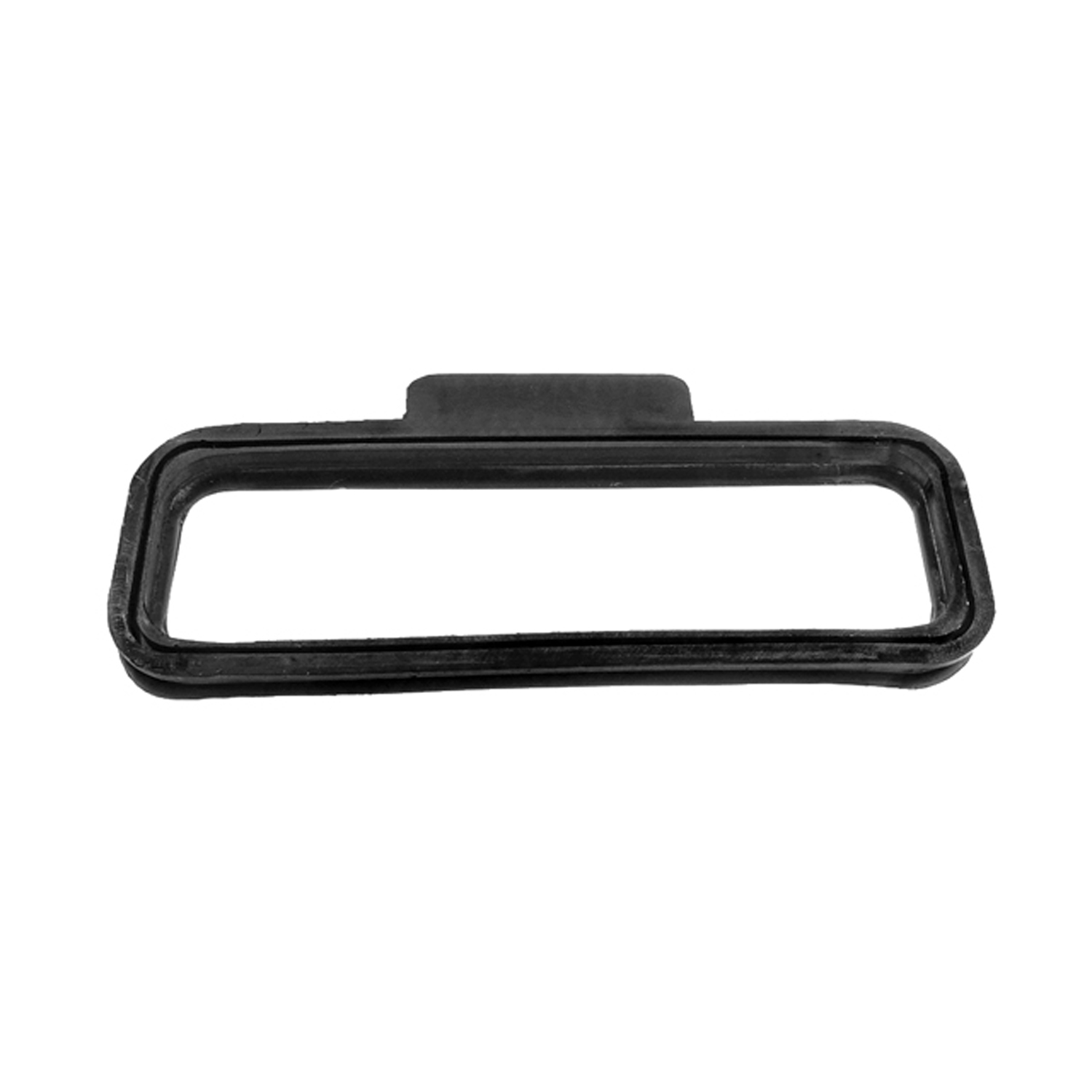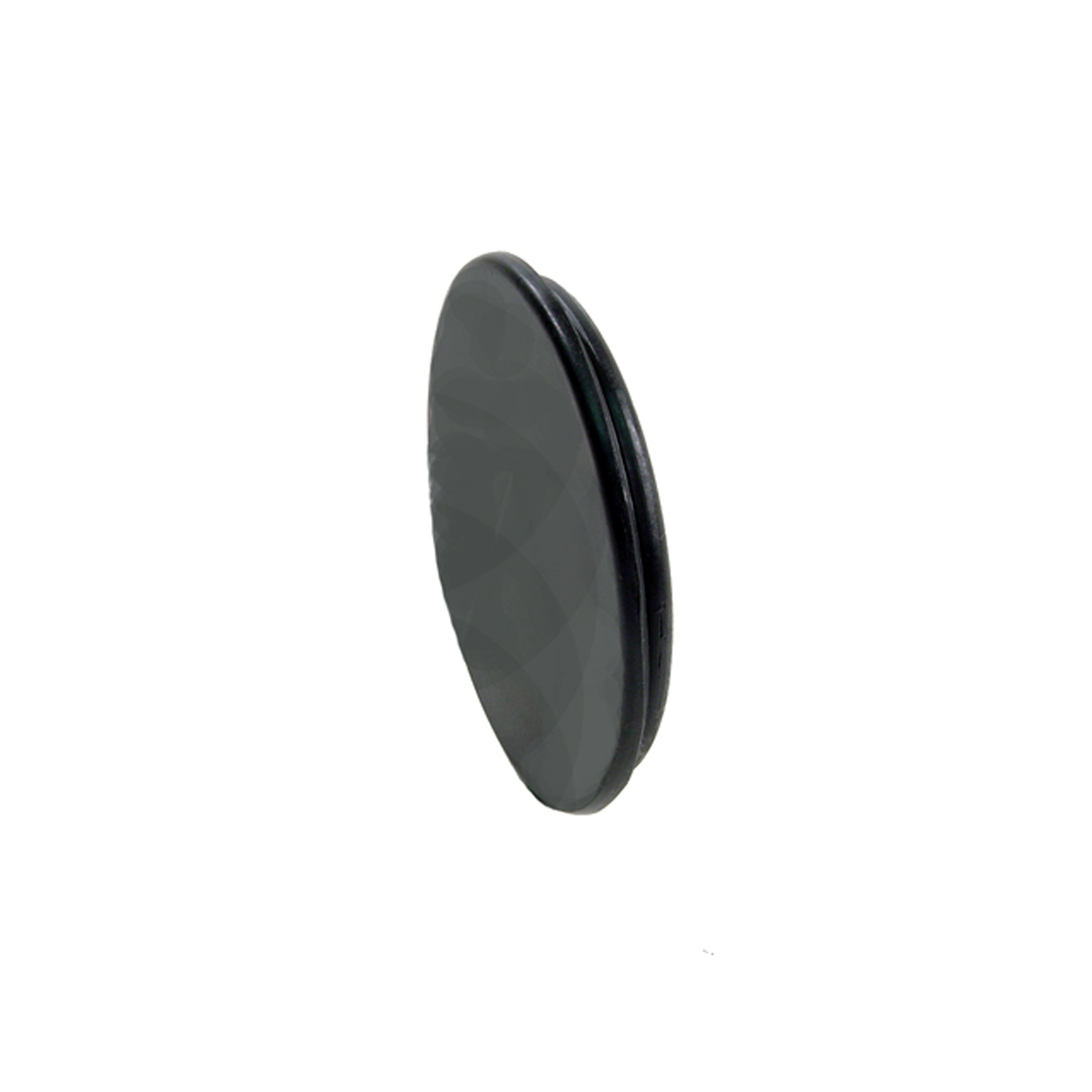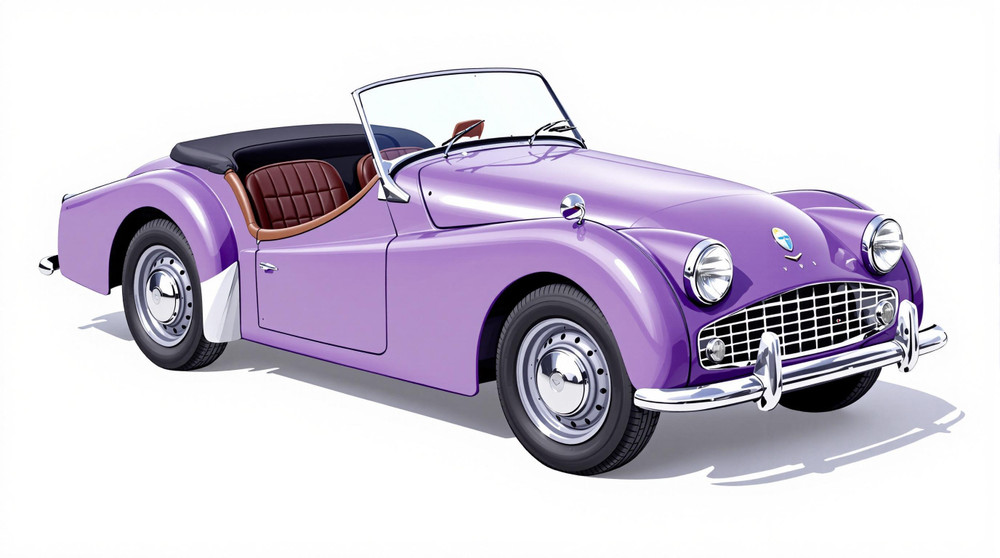Image of 1957 Triumph Tr3a, Note: These illustrations use artistic license and may differ from actual historical models.
Performance Metrics
Fundamental Metrics
Emotional Appeal
MMP Rating
| Engine Specifications | |
|---|---|
| Engine: | Inline 4 |
| Displacement: | 1991 cc |
| Horsepower: | 100 hp |
| Torque: | 117 lb-ft |
| Compression Ratio: | 9.0:1 |
| Ignition System: | Coil and distributor |
| Cooling System: | Water-cooled |
| Performance Specifications | |
| 0-60 Time: | 12 seconds |
| 1/4 Mile Time: | 18 seconds |
| Top Speed: | 105 mph |
| Transmission and Drive | |
| Drive Type: | Rear-wheel drive |
| Transmission Type: | 4-speed manual |
| Fuel and Efficiency | |
| Fuel System Type: | Twin SU carburetors |
| MPG: | 25-30 mpg |
| Dimensions and Brakes | |
| Brakes: | Front disc, rear drum |
| Wheelbase: | 88 inches |
| Weight: | 2100 lbs |
Note: Specifications for classic cars are given to the best of our ability, considering the limited and variant data available.
Unveiling the Quintessence of British Sports Cars: The 1957 Triumph TR3A
The year 1957 marked the arrival of an automotive icon, the Triumph TR3A, a vehicle that would carve its niche in the annals of classic sports cars. Born from the storied British manufacturer, the Standard-Triumph Motor Company, this roadster was a testament to post-war British engineering and design. With its cutaway door design and distinctive grille, the TR3A became an emblem of freedom and adventure during the 1950s and 60s. A notable moment in its history was when it became the first production car to feature standard front disc brakes, a testament to its innovative spirit.
Design and Innovation
The Triumph TR3A's exterior styling was a harmonious blend of elegance and sportiness. Its wide-mouth front grille, pronounced wheel arches, and sleek side screens were more than just aesthetically pleasing; they were aerodynamically functional. Inside, the TR3A was both spartan and charming, with a focus on what mattered most to drivers: the open road experience. The quality of materials reflected the era's craftsmanship, with leather seats and a simple yet robust dashboard layout. Technologically, it stood out with its aforementioned disc brakes and a four-speed manual transmission that included an optional overdrive.
Color options ranged from Signal Red to Powder Blue, with British Racing Green being a particularly popular choice among enthusiasts. While the roadster body style was predominant, buyers could opt for a removable hardtop for all-season enjoyment. The most iconic configuration was undoubtedly the open two-seater with its jaunty cutaway doors.
Historical Significance
The Triumph TR3A's impact on automotive design is undeniable. It set a precedent for sports cars that followed, prioritizing driver engagement and mechanical simplicity over opulence. Its introduction of standard front disc brakes revolutionized vehicle safety and performance at a time when such features were reserved for high-end models or racing vehicles.
Performance and Handling
Underneath its bonnet lay a robust 2.0-liter inline-four engine that propelled the TR3A to top speeds nearing 105 mph—a remarkable feat for its time. Acceleration from 0-60 mph could be achieved in approximately 10.8 seconds. On winding roads or when navigating through uneven terrain, the car's independent front suspension and live rear axle provided an authentic driving experience that demanded skill and rewarded finesse.
Driving a TR3A was visceral; the roar of its engine was music to any enthusiast's ears, while the wind rushing past only added to its exhilarating charm. The connection between driver, machine, and road was intimate—a symphony of mechanical harmony.
Ownership Experience
The Triumph TR3A found its place as both a daily driver for some and a weekend warrior for others. Its reliability was commendable for the era, though modern owners should expect regular maintenance to keep this classic in top form. Parts are generally accessible due to a dedicated community of enthusiasts and specialists who ensure these vehicles continue to grace our roads.
Fun Facts
Did you know that several Hollywood stars were known to cruise in their own Triumph TR3As? This car also made appearances in numerous films and TV shows, enhancing its cool factor. While not known for setting speed records, it did establish itself as a formidable competitor in club racing events.
Collector's Information
Today, the Triumph TR3A holds a special place in collectors' hearts. With roughly 58,000 units produced during its production run from 1957 to 1962, it is relatively rare but still accessible enough for aspiring collectors. Values can vary greatly depending on condition but expect well-maintained examples to fetch anywhere from $20,000 to $40,000 at auction—with exceptional specimens commanding even higher prices.
Conclusion
The 1957 Triumph TR3A is more than just another classic car; it is a piece of motoring history that embodies the spirit of British sports car design. Its legacy is characterized by innovation, performance, and timeless appeal—a true jewel in any collector's garage.
1957 Triumph Tr3a Catalog of Parts
 1957 Triumph TR3A Starter Solenoid Button Cover. Perfect reproduction. Each-RP 1Starter Solenoid Button Cover. Perfect reproduction. Each
1957 Triumph TR3A Starter Solenoid Button Cover. Perfect reproduction. Each-RP 1Starter Solenoid Button Cover. Perfect reproduction. Each 1957 Triumph TR3A Cowl Vent Seal-RP 100-ACowl Vent Seal. 2-1/2" wide X 7" long, with a 5/8" wide X 2-7/16" long projecting tab. Each
1957 Triumph TR3A Cowl Vent Seal-RP 100-ACowl Vent Seal. 2-1/2" wide X 7" long, with a 5/8" wide X 2-7/16" long projecting tab. Each 1957 Triumph TR3A Jack Socket Plug. Fits a 2-7/8" hole. Each-RP 91Jack Socket Plug. Fits a 2-7/8" hole. Each
1957 Triumph TR3A Jack Socket Plug. Fits a 2-7/8" hole. Each-RP 91Jack Socket Plug. Fits a 2-7/8" hole. EachWhy Choose Metro?
For over 100 years, Metro Moulded Parts has been the pinnacle of quality in classic car restoration parts. Our commitment to precision and authenticity in every component ensures a perfect fit and an OEM-level appearance.
- Expert Craftsmanship & Quality: Each part is a testament to our dedication to reliability and perfection, crafted from original designs and thoroughly tested.
- Advanced Technology: We use cutting-edge techniques to create flawless, long-lasting parts that surpass others in performance.
- SuperSoft Sponge – The Ultimate Door Seal: Not only are our door seals 30% softer than competitors', but they're also guaranteed to never leak. They effectively reduce wind and road noise, enhancing your classic car's comfort and driving experience.
- Proudly American: Our parts are a product of American craftsmanship, made in the USA with a spirit of excellence and heritage.
- Unrivaled Warranty: We back our products with a 30-year industry-leading warranty, a testament to our confidence in their quality.
Join us in preserving the legacy of classic cars with parts that are crafted for perfection, not just made.

